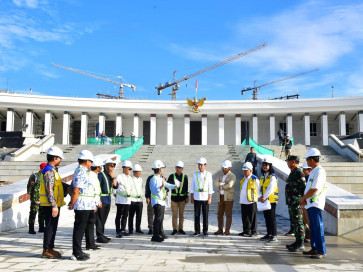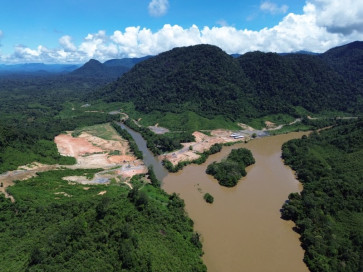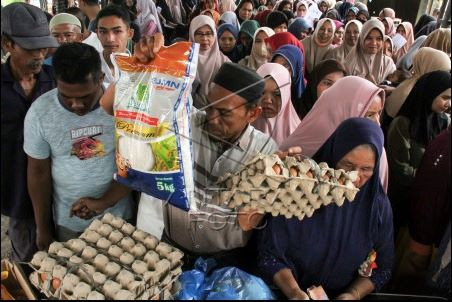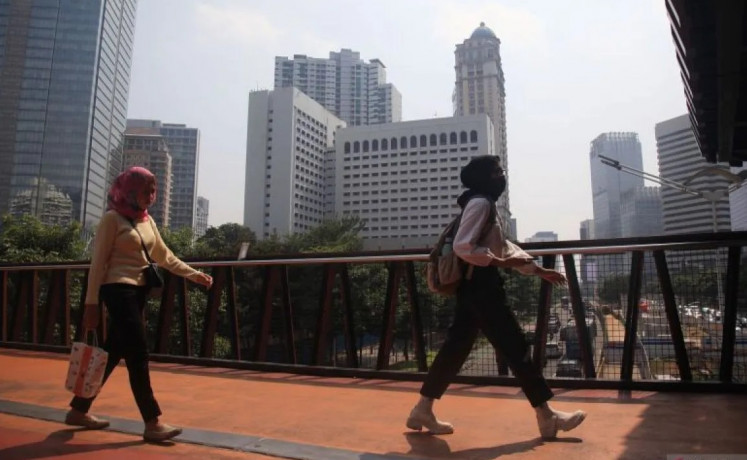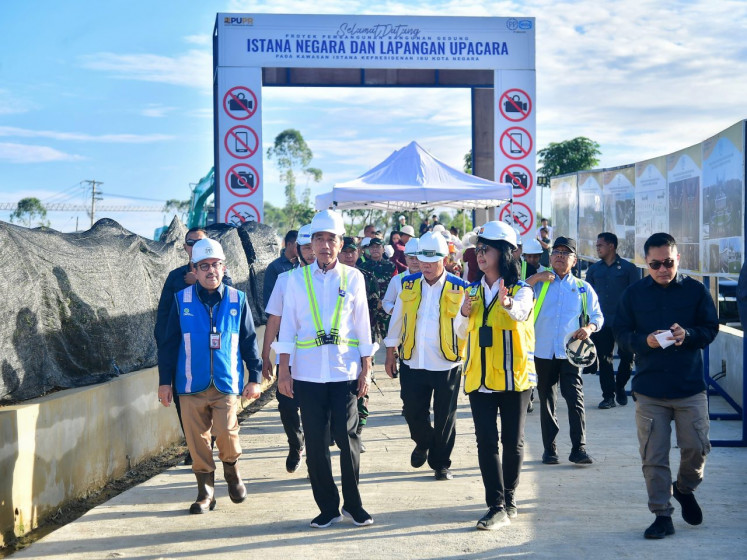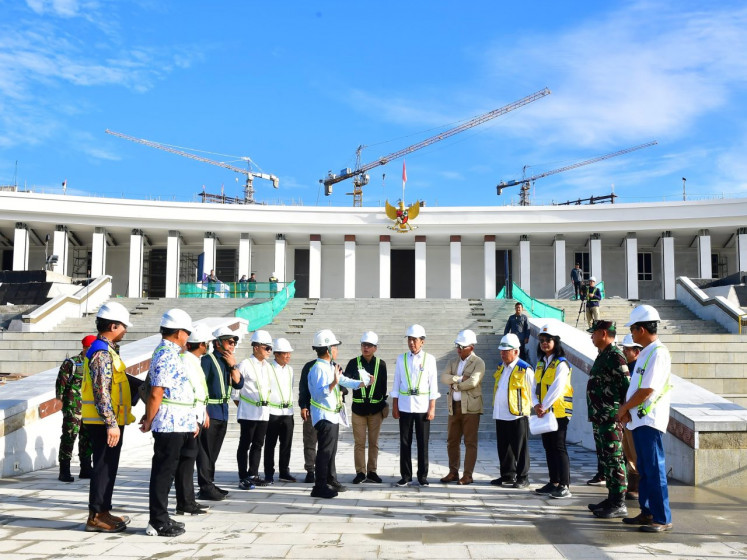Analysis: Bata closes its Indonesian factory, raises concerns of deindustrialization
Change Size
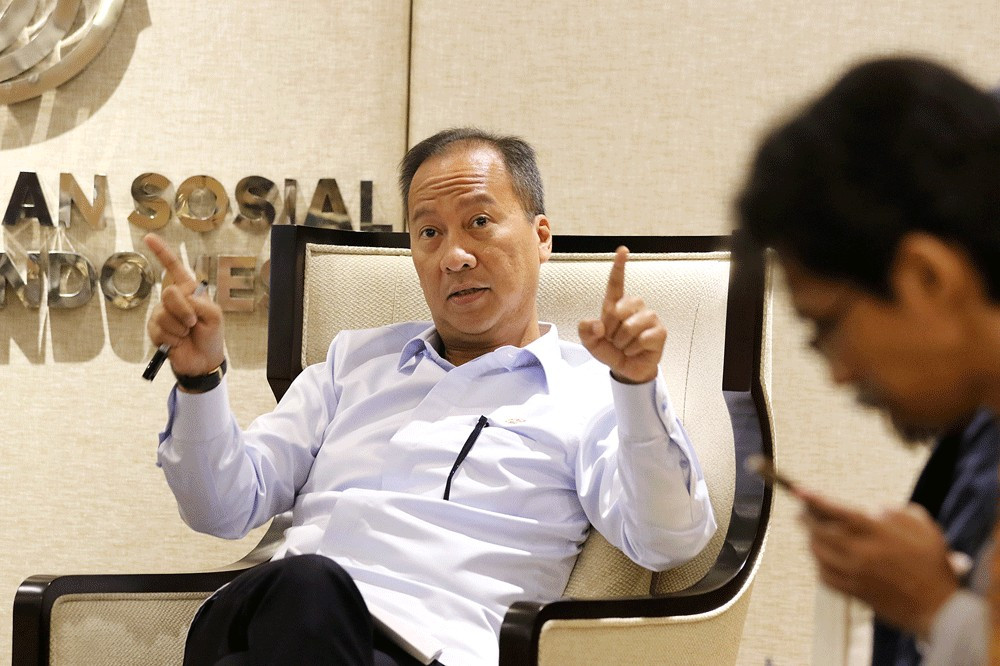 Industry Minister Agus Gumiwang Kartasasmita. (The Jakarta Post/Jerry Adiguna)
Industry Minister Agus Gumiwang Kartasasmita. (The Jakarta Post/Jerry Adiguna)
W
hile deindustrialization in Indonesia remains a matter of debate, the recent closure of shoe manufacturer PT Sepatu Bata’s only factory in the country has sparked new concerns. The government has assured that Indonesia’s manufacturing industry is still healthy.
Bata’s factory officially ceased production on April 30, after struggling to stay afloat for the past four years amid losses and challenges to the footwear industry caused by the COVID-19 pandemic. The company had recorded a Rp 51.2 billion (US$3.19 million) loss in 2021, which increased to Rp 105 billion in 2022 and Rp 190 billion in 2023. The year 2023 also saw the company experience an increase in current liabilities and a decline in current assets, resulting in its current ratio falling to 88.9 percent. That same year, the company also downsized its workforce by 3.6 percent to a total of 366 employees across all levels.
Bata spokesperson Hatta Tutuko mentioned that one of the challenges the company faced was the rapid change in consumer behavior. In the end, a drop in demand led to a huge excess in Bata’s production capacity, far surpassing the needs that could be obtained sustainably from local suppliers in the country.
The closure of Bata’s only factory in Indonesia is seen to confirm the country’s deindustrialization process, as indicated by the decline in the manufacturing industry’s contribution to gross domestic product (GDP). The country’s manufacturing industry dropped from 27.8 percent in 2008 to 22 percent in 2010, dropping again during the COVID-19 pandemic to 19.8 percent in 2020, and declining to 19.25 percent in 2021, 18.34 percent in 2022 and 18.25 percent in 2023. Another symptom of deindustrialization is the slower growth of the manufacturing sector compared with overall economic growth. In the second quarter of 2023, for example, the manufacturing industry grew 4.88 percent, below the overall economic growth of 5.17 percent.
An outlook report by the Institute for Economic and Social Research at the Faculty of Economics and Business, the University of Indonesia (LPEM FEB UI), suggested that the country was experiencing early signs of deindustrialization, as evidenced by the average share of the manufacturing industry to GDP having reached its lowest level during President Joko Widodo's second term.
The government, however, has refuted that deindustrialization was behind the closure of Bata’s factory. Industry Minister Agus Gumiwang pointed out that the country’s manufacturing performance had shown improvement, highlighted by the sector’s purchasing managers index (PMI), which remained at an expansionary level despite a slight decrease from 52.9 in January to 52.7 in February. Moreover, Agus noted that Indonesia’s manufacture value-added (MVA) reached $288 billion in 2021, contributing around 1.46 percent to the global MVA, surpassing countries such as Canada, Turkey, Thailand and Brazil.
With at least 230 workers laid off because of the factory’s closure, the government is said to be helping strengthen the company, particularly concerning the government’s prohibited and restricted imported goods policy. This aligns with reports indicating that Bata’s retail stores will continue operations, receiving shoe supplies imported from the company’s other factories abroad. Febri hopes that with the aforementioned policy, the footwear industry can begin to build and maximize its factories in Indonesia.
What we’ve heard
According to an advisor to a minister in the economic sector, the Indonesian government is indeed aggressively promoting localization in many sectors, including encouraging businesses to domestically produce their commodities. However, this source said that this desire was not accompanied by a comprehensive strategy in terms of government policy. "For example, there is a tightening of imports of raw materials, namely industrial raw materials that fall under the category of restricted goods [lartas]," said the source.
This source said that labor-intensive industries such as footwear and textiles still relied on imported raw materials and that the government needed to consider strategies for how the domestic industry could obtain easy access to raw materials. This includes, for example, exempting import duties on industrial raw materials. According to this source, the authority to waive such duties, for example, required cross-ministerial coordination.
On the other hand, this source also said the trade ministerial regulation on imports was indeed aimed at encouraging the growth of the domestic industry by tightening and restricting the import of finished products in various commodities. The source hoped that this policy can encourage foreign private companies to start considering building their production facilities in Indonesia.
According to the source, even if they did not build the entire product, foreign private companies could produce some components of their products and make Indonesia part of the global commodity supply chain. "So that Indonesia doesn't just become a place to sell,” said this source.
Disclaimer
This content is provided by Tenggara Strategics in collaboration with The Jakarta Post to serve the latest comprehensive and reliable analysis on Indonesia’s political and business landscape. Access the latest edition of Tenggara Backgrounder to read the articles listed below:
Politics
- Presidential club initiative likely to be DOA
- Human rights concerns loom amid state’s imports of invasive spyware
- Election Law revision to chart a path forward
- Revised Village Law at crossroads
Business and Economy
- Indonesia streamlines international airports due to low traffic
- GoTo to hold another private placement, buy back shares
- Ramadan, election boost Indonesia’s Q1 growth




